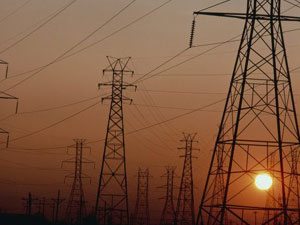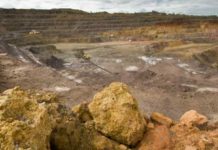
[miningmx.com] – IN 2001, Eskom signed an agreement extending the
duration of its aluminium contract for the Hillside smelter although it knew that the
country would be experiencing power shortages by 2008.
The electricity contract for the first two potlines at Hillside would only have been until
2020, but when building of the third potline started in 2001 and a new contract was
drawn up for it, the contract for potlines 1 and 2 was extended to 2028.
Thembani Bukula, chairman of Nersa’s electricity committee, says the second contract
was approved by the then National Energy Regulator, but the contract for Hillside 1
and 2 was never submitted to the regulator.
“The first contract could therefore not be extended by the regulator because it was
never submitted to the then NER,’ he told Sake24 last week.
BHP Billiton differs with this view and believes the electricity contract for all three
potlines at Hillside now runs to 2028. This will form part of the dispute in which Nersa
was asked by Eskom to review the Hillside contracts.
BHP Billiton earlier also refused to allow the Nersa contracts to be made public, but
Nersa itself was going to apply to the court for the contracts to be made public.
However Sake 24’s court application, which started four years ago and
culminated in a court hearing three years ago, made this unnecessary and probably
saved a lot of time.
The National Energy Regulator was only established in 1995 – the same year in which
Hillside 1 and 2 came into operation.
The contract for Hillside’s potline 3 was signed on behalf of Eskom by Jacob Maroga,
executive director of distribution for Eskom at the time, and Mohamed Seedat, former
head of Billiton’s aluminium division in December 2001.
Dr Xolani Mkhwanazi, now president of BHP Billiton in South Africa and chief operating
officer of the group’s aluminium division, was CEO of NER when this approval was
given.
However, Eskom warned in its annual report in 2001 for the first time that it would
experience electricity shortages in 2008 because by that time it had still not started
building a new power station yet.
Maroga told Seedat on 5 February 2002 that the contract for Hillside 3 had been
approved by NER. However, NER required that the rate for Hillside 3 should not be
less than the rate for bulk users.
“However, this does not apply to the Hillside 1 and 2,’ Bukula said.
According to the calculation of Sake 24’s consultant, Johan Anderssen of ENF
Consulting in Cape Town, from 2001 to 2012 Eskom chalked up a loss of R10.7bn from
the Hillside 1 and 2 contracts. About R1bn of this was from 2001 to March 2008 and
the rest afterwards.
The reviewing of the contracts by Nersa, which will probably result in a long court
battle, starts officially at the end of this week when Nersa will publish the contracts
themselves and Eskom’s application for a review of them.
“Approximately thirty days later the public hearing can start,’ Bukula said.
The contracts will probably be declared void by Nersa because they clearly do not
cover the cost of delivery. However, Mkhwanazi said in an open letter two weeks ago
that he expects Eskom to honour its contracts with BHP Billiton.
It is therefore very likely that Billiton will try to fight a Nersa decision against it in
court.
However, the contract for Bayside, the oldest and smallest of the smelters, will not be
included because it is not involved in Sake 24’s court order.










